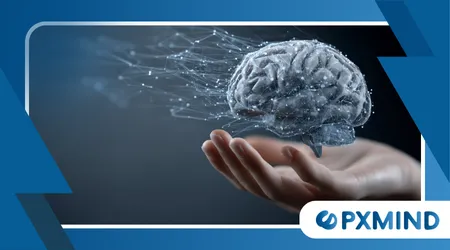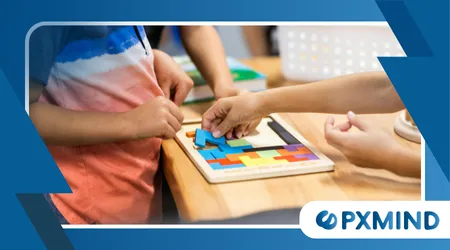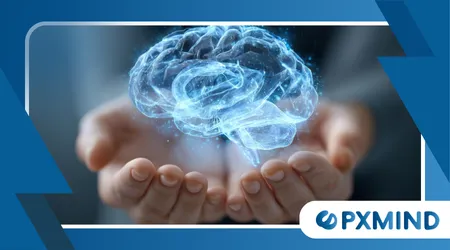Can Brain Training Games Really Improve Your Mind?

Brain Training Games Really Improve Your Mind is a powerful marketing slogan. The digital age promised us convenience and connectivity.
Anúncios
Now, it offers something more ambitious: a sharper mind through play.
These apps, which are often backed by slick neuroscience jargon, promise to boost memory, speed up processing, and fortify cognition against the erosion of time.
Millions worldwide have embraced them. The industry is booming, but does the science truly support the hype, or are we paying for a digital placebo effect?
The answer lies in the subtle distinction between training and transfer.
What Does Neuroscience Say About Cognitive Plasticity?
Our brains possess an incredible feature called neuroplasticity. This is the biological capacity for neural networks to change.
New connections form and reorganize themselves throughout life.
This fundamental principle fuels the entire brain training concept. It confirms that the adult brain is not a static organ.
How Do Brain Training Games Claim to Work?
These games are designed to target specific cognitive domains. They often focus on working memory, attention, and executive functions.
The idea is that repetitive, challenging engagement strengthens the neural circuits. This targeted “workout” supposedly leads to better real-world performance.
The developers argue that continuous engagement forces the brain to adapt. A classic example is a speed-of-processing task.
Read more: How the Brain Handles Information Overload
By reacting faster to stimuli, the user sharpens their information processing speed. They hope this localized improvement will generalize.
Is There “Transfer” of Skills, or Just Better Gaming?
The core debate centers on the concept of “transfer effect.” Near transfer means improving on a task very similar to the one practiced.
Far transfer means improving on an entirely different, untrained cognitive function or a real-life skill. This is the holy grail for brain training companies.
Scientific consensus, including a significant statement from over 70 leading cognitive scientists, often highlights a critical gap.
++ Understanding Mirror Neurons and Social Connection
The consensus points out that while users often become proficient at the games, the evidence for far transfer remains thin and frequently exaggerated.
Is becoming faster at a memory game the same as remembering where you parked your car?
Why Do Users Feel Smarter After Playing?
Perceived benefits often result from two factors: increased task-specific efficiency and the placebo effect.
The feeling of accomplishment, combined with the expectation of improvement, can be a powerful mental boost.
Furthermore, the engagement itself, which is a new mental challenge, is inherently beneficial.

Where Do Brain Training Games Really Improve Your Mind? Real-World Evidence.
Some high-quality, large-scale studies have shown promising results in specific populations and with specific training types.
See how interesting: Healing from Burnout
This nuanced evidence suggests that not all brain training is created equal.
The key appears to be the type of cognitive function being trained and the rigor of the program.
| Cognitive Training Intervention | Primary Target Domain | Evidence for Far Transfer |
| Speed-of-Processing Training | Attention, Processing Speed | Strong (Driving safety, IADL) |
| Working Memory Training | Working Memory | Mixed/Moderate (Specific tasks) |
| Executive Function Games | Problem-Solving, Flexibility | Weak (Often limited to near transfer) |
Source: Adapted from reviews on the ACTIVE Trial and subsequent meta-analyses, 2024-2025.
Case Study: The ACTIVE Trial’s Major Finding Brain Training Games Really Improve Your Mind
The Advanced Cognitive Training for Independent and Vital Elderly (ACTIVE) trial, a landmark study, provides the strongest evidence yet.
This federally funded trial found that speed-of-processing training reduced the risk of developing dementia over a 10-year follow-up period by a significant margin.
This finding of a 10-year effect is a compelling, rare example of far transfer to a critical real-world outcome. This specific data point shifts the conversation.
Cognitive Fitness
Consider the brain like a vast, complex gymnasium. When you only use the “Biceps Machine” (e.g., a memory game), your biceps get bigger (you get better at that game).
That’s near transfer. But will your legs get stronger? Will you run faster in a marathon? Probably not.
True cognitive fitness requires a diverse, whole-body workout. An integrated routine is vital.
The Focused Benefit. A program designed to rapidly distinguish auditory stimuli might improve hearing-in-noise capabilities.
This is a very specific, real-world benefit for older adults. However, it will not, on its own, improve your ability to learn a new language.
This is a crucial distinction when asking if Brain Training Games Really Improve Your Mind.
The Lifestyle Connection. An older person who religiously uses a brain game for 30 minutes daily also starts walking and joining a book club.
Their overall cognitive function soars. Was it the game, or was it the combination of physical activity and social interaction? It is often a synergistic effect.

The Smarter Approach: Combining Training with Lifestyle
The greatest pitfall is viewing brain games as a “magic bullet.” The truth, often overlooked in the marketing push, is that cognitive health is an ecosystem.
The most effective strategy integrates targeted training with established, scientifically proven lifestyle habits. A comprehensive approach yields better results.
According to recent neurological reviews, consistent aerobic exercise—even a brisk 30-minute walk—increases blood flow to the hippocampus, the brain’s memory center.
This single, low-cost activity often provides a more generalized cognitive benefit than isolated gaming. The evidence is robust and consistently replicated.
So, where do these games fit in? They function as valuable complements, not replacements. They offer a unique, engaging way to challenge specific cognitive bottlenecks.
Can Brain Training Games Really Improve Your Mind? Yes, but only as part of a larger, active, and mentally stimulating life.
They should not substitute for reading, social interaction, learning a new language, or physical activity.
Why do people search for a quick-fix app instead of taking a walk or learning a new skill? The appeal of effortless improvement is powerful, but reality demands effort.
A Measured Perspective for 2025
The science of 2025 has moved past the simple “do they work or not” question.
The refined answer is: Some specialized programs show evidence of meaningful far transfer for specific populations, particularly in speed of processing.
For most general-purpose apps, the main benefit is often limited to near-transfer skills.
If you enjoy the challenge and find the games engaging, use them as one tool in your cognitive health arsenal.
Do not be misled by exaggerated marketing claims.
The strongest foundation for a sharp mind remains an active social life, regular physical exercise, high-quality sleep, and continuous learning.
These are the undisputed champions of neuroplasticity.
The real question isn’t whether Brain Training Games Really Improve Your Mind, but whether you are also committed to the foundational efforts that make them effective.
Frequently Asked Questions
Are free brain training apps as effective as paid ones?
Efficacy depends on the program’s design, not its price.
Programs designed by neuroscientists and validated in peer-reviewed studies are more likely to offer transferrable benefits, regardless of cost structure.
Can these games prevent Alzheimer’s disease?
No game or app can definitively claim to prevent Alzheimer’s.
However, certain types of cognitive training, like the speed-of-processing mentioned in the ACTIVE trial, are associated with a reduced risk of cognitive impairment.
How often should I play brain training games for maximum benefit?
Most research protocols involve a few sessions per week, typically 30 to 60 minutes per session, over several weeks or months. Consistency is more important than marathon sessions.
Should I prioritize brain games over physical exercise?
Absolutely not. Physical exercise is the single most powerful and evidence-backed intervention for overall cognitive health, including mood and memory.
Use brain games as a supplement to exercise, not a substitute.
